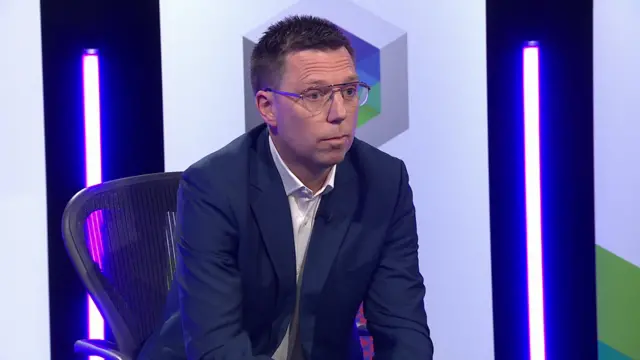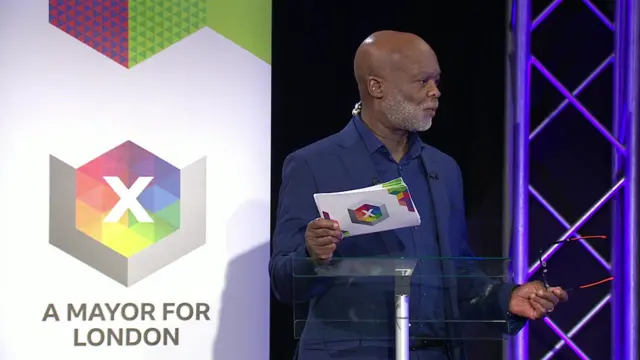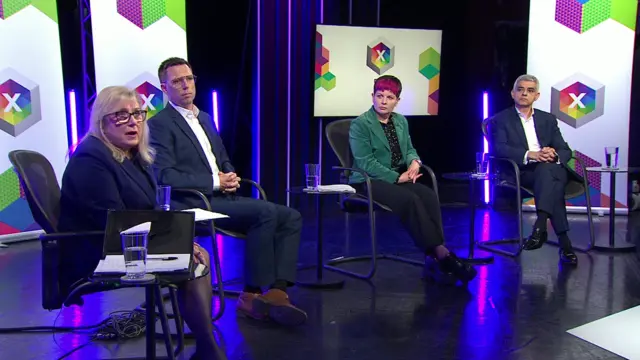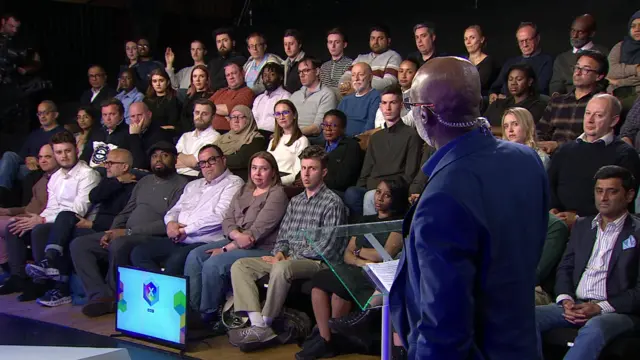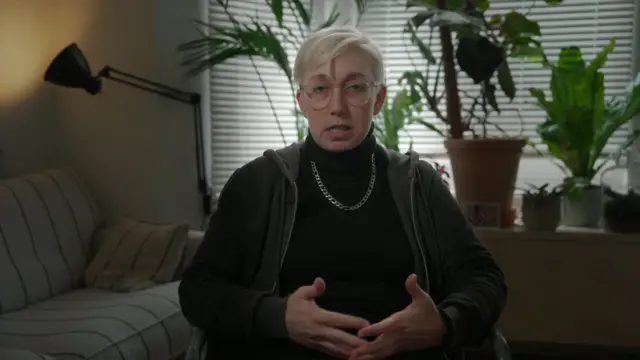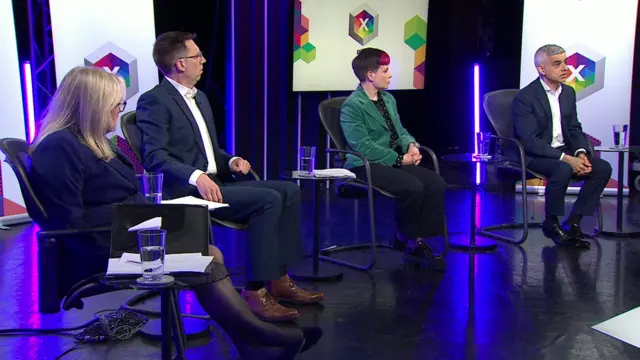The debate comes to a closepublished at 21:00 BST 25 April 2024
Eddie Nestor brings the debate to a close and so ends our live coverage.
He will be back on air on BBC Radio London from 06:00 and will be wanting to hear your thoughts about how you thought the four candidates did.
We will be running another live page in the morning bringing you all the reaction so do please get in touch.
You can call the show on 0800 731 2000, text 81333 and start your message with "London", or message us on WhatsApp on 08000 321 333, starting your message with “London" (further information with charges can be found here).
But for now, good night.
